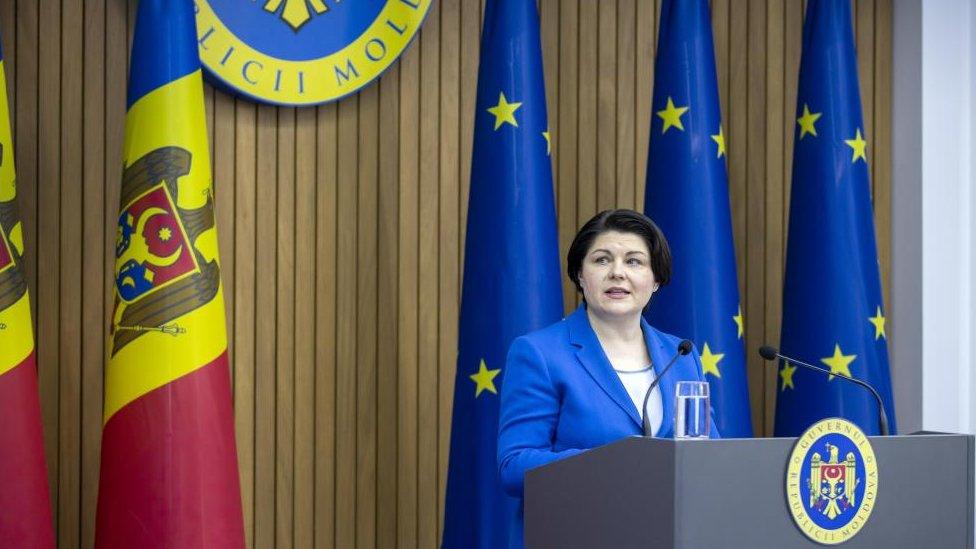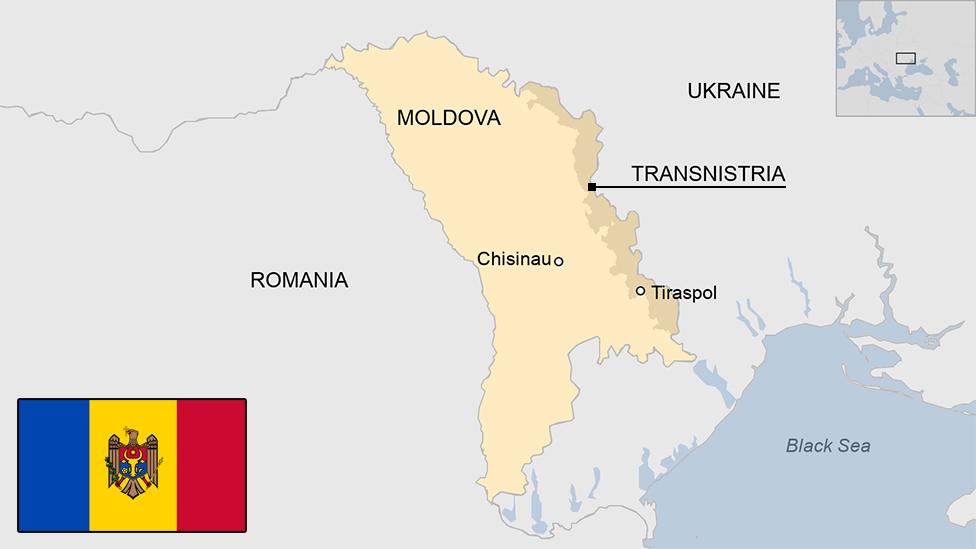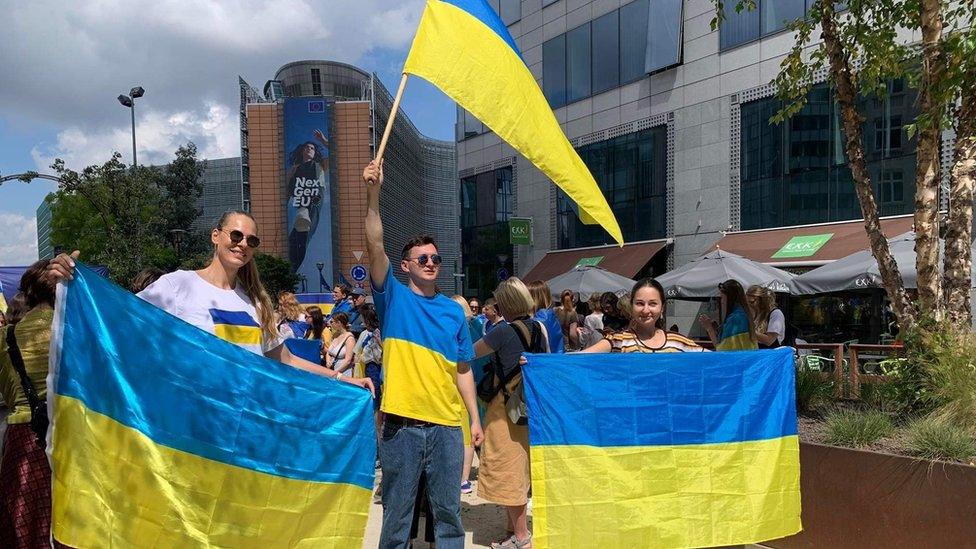Moldovan government resigns in wake of multiple crises
- Published

Natalia Gavrilita said her government had to deal with "many crises caused by Russian aggression"
Moldova's government has collapsed and its pro-EU prime minister has stepped down after 18 months of political and economic turbulence.
Europe's poorest country was struggling with "multiple crises", outgoing PM Natalia Gavrilita said on Friday.
With the war raging in neighbouring Ukraine, Moldova has been facing inflation, high energy prices, a refugee influx and Russian aggression.
The news came just hours after Russian missiles flew over Moldovan airspace.
Announcing her resignation on Friday, Ms Gavrilita said that when her government was elected in 2021, no one expected it would have to manage "so many crises caused by Russian aggression in Ukraine".
Moldova is precariously close to the war - it shares a 1,222km (759 mile) border with Ukraine, and has suffered greatly from the fallout of Russia's invasion.
"I took over the government with an anti-corruption, pro-development and pro-European mandate at a time when corruption schemes had captured all the institutions and the oligarchs felt untouchable," Ms Gavrilita said at a news conference.
"We were immediately faced with energy blackmail, and those who did this hoped that we would give in," she said, referring to the Kremlin.
An energy crisis was sparked last year when Russia suddenly reduced its gas supplies to Moldova, which relied 100% on Russia for gas. It caused inflation to skyrocket and there was public unrest over the high energy costs.
President Maia Sandu thanked Ms Gavrilita for her "enormous sacrifice and efforts to lead the country in a time of so many crises".
"We have stability, peace and development, where others wanted war and bankruptcy," the president said.
She has already nominated her former defence adviser Dorin Recean - who is also pro-EU - as the next prime minister. The Moldovan parliament will vote to confirm his nomination next week.
In the earlier days of the war in Ukraine, there were fears the conflict would spill over into Moldova, or that Russia might invade it too.
That concern has receded for now, but as Moldova moves ever closer to joining the European Union, pressure has increased from Russia - which has tried to undermine the former Soviet state, and the EU's influence.
In a stark warning on Thursday, Ukraine's President Volodymyr Zelensky said that Russia had a plan to "destroy" Moldova, according to Ukrainian intelligence.
"These documents show who, when and how Russia is going to break democracy of Moldova and establish control," he told EU leaders at a summit in Brussels.
"I immediately warned Moldova about these threats," he added.
Moldovan intelligence services later confirmed they had also identified "subversive activities" aimed at "undermining the state of the Republic of Moldova, destabilizing and violating public order."
There are also renewed tensions in Transnistria, a breakaway territory controlled by pro-Russian separatists that runs along Moldova's border with Ukraine, and where some 1,500 Russian soldiers are stationed.
Last week, Russian Foreign Minister Sergei Lavrov accused the West of trying to turn Moldova against Russia - as he claimed it had already done with Ukraine.
Natalia Gavrilita became prime minister in August 2021 when President Sandu's pro-European Party of Action and Solidarity (PAS) won a landslide parliamentary election.
She previously served as finance minister from June 2019 to November 2019 in when Ms Sandu was prime minister.
- Published4 November 2024

- Published10 February 2023

- Published23 June 2022
